287 start with C start with C
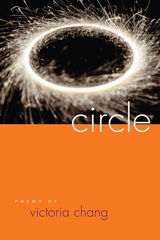
Taking its concept of concentricity from the eponymous Ralph Waldo Emerson essay, Circle, the first collection from Victoria Chang, adopts the shape as a trope for gender, family, and history. These lyrical, narrative, and hybrid poems trace the spiral trajectory of womanhood and growth and plot the progression of self as it ebbs away from and returns to its roots in an Asian American family and context. Locating human desire within the helixes of politics, society, and war, Chang skillfully draws arcs between T’ang Dynasty suicides and Alfred Hitchcock leading ladies, between the Hong Kong Flower Lounge and an all-you-can-eat Sunday brunch, the Rape of Nanking and civilian casualties in Iraq.
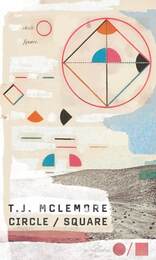

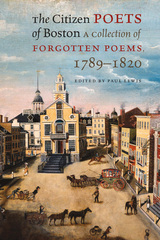
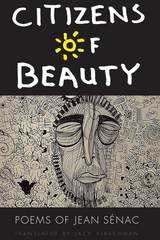
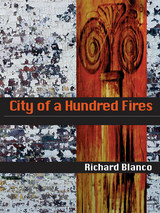
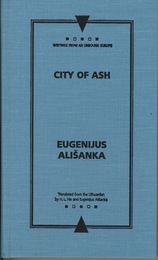
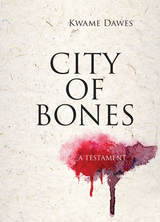
As if convinced that all divination of the future is somehow a re-visioning of the past, Kwame Dawes reminds us of the clairvoyance of haunting. The lyric poems in City of Bones: A Testament constitute a restless jeremiad for our times, and Dawes’s inimitable voice peoples this collection with multitudes of souls urgently and forcefully singing, shouting, groaning, and dreaming about the African diasporic present and future.
As the twentieth collection in the poet’s hallmarked career, City of Bones reaches a pinnacle, adding another chapter to the grand narrative of invention and discovery cradled in the art of empathy that has defined his prodigious body of work. Dawes’s formal mastery is matched only by the precision of his insights into what is at stake in our lives today. These poems are shot through with music from the drum to reggae to the blues to jazz to gospel, proving that Dawes is the ambassador of words and worlds.
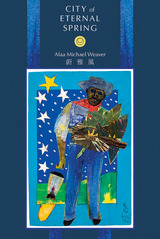
This is the final book in the Plum Flower Trilogy by Afaa Michael Weaver, published by the University of Pittsburgh Press. The two earlier books, The Plum Flower Dance: Poems 1985 to 2005 and The Government of Nature, reveal similar themes that address the author’s personal experience with childhood abuse through the context of Daoist renderings of nature as a metaphor for the human body, with an eye to recovery and forgiveness in a very eclectic spiritual life. City of Eternal Spring chronicles Weaver’s travels abroad in Taiwan and China, as well as showing the limits of cultural influence.
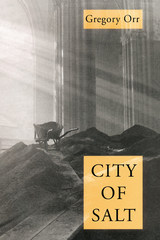

The cultural, ethnic, and aesthetic diversity in this gathering of poems springs from a variety of viewpoints, styles, and voices as multifaceted and energetic as the city itself. Cristin O’Keefe Aptowicz: “I want to eat / in a city smart enough to know that if you / are going to have that heart attack, you might / as well have the pleasure of knowing // you’ve really earned it”; Renny Golden: “In the heat of May 1937, my grandfather / sits in the spring grass of an industrial park / with hundreds of striking steelworkers”; Joey Nicoletti: “The wind pulls a muscle / as fans yell the vine off the outfield wall, / mustard-stained shirts, hot dog smiles, and all.”
The combined energies of these poems reveal the mystery and beauty that is Second City, the City by the Lake, New Gotham, Paris on the Prairie, the Windy City, the Heart of America, and Sandburg’s iconic City of the Big Shoulders.

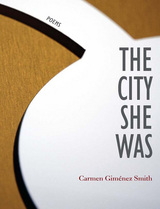
Published by the Center for Literary Publishing at Colorado State University
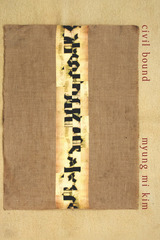
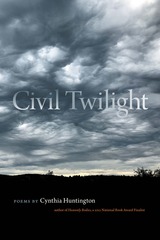
New collection from National Book Award finalist
Civil twilight is the astronomical term for the minutes just before sunrise and just after sunset. If one took a snapshot, it would be impossible to tell whether the light was increasing or diminishing. The poems in Civil Twilight arise in this liminal space. With luminous precision, Cynthia Huntington examines the civil twilight we live in now, unsure of whether the darkness is closing in or whether the light is about to break.
Here the poet is both skeptic and seeker, for any hope worth discovering needs to withstand the facts at hand. Is everything getting worse, or are things about to improve? Or is this the way things have always been, both hopeful and terrifying, and it is our questions that need to change? In part one, the speaker strives for balance by maintaining light and warmth in a cold season. In part two, American scenes of construction and destruction are set beside moments from history: Rome, the British Empire, and American immigration. Part three enfolds questions of history and power within winter scenes and the artist’s imagination. In part four, the speaker looks back and admits answers remain elusive, yet points to the new ways of thinking and feeling about survival that have resulted from the work. And here, the half-light shifts. In a world teetering on the edge of collapse, Civil Twilight wrestles hard-won hope from disquiet, coming to rest in what is.

Epic history.
Lucan (M. Annaeus Lucanus, AD 39–65), son of wealthy M. Annaeus Mela and nephew of Seneca, was born at Corduba (Cordova) in Spain and was brought as a baby to Rome. In AD 60 at a festival in Emperor Nero’s honor Lucan praised him in a panegyric and was promoted to one or two minor offices. But having defeated Nero in a poetry contest he was interdicted from further recitals or publication, so that three books of his epic The Civil War were probably not issued in 61 when they were finished. By 65 he was composing the tenth book but then became involved in the unsuccessful plot of Piso against Nero and, aged only twenty-six, by order took his own life.
Quintilian called Lucan a poet “full of fire and energy and a master of brilliant phrases.” His epic stood next after Virgil’s in the estimation of antiquity. Julius Caesar looms as a sinister hero in his stormy chronicle in verse of the war between Caesar and the Republic’s forces under Pompey, and later under Cato in Africa—a chronicle of dramatic events carrying us from Caesar’s fateful crossing of the Rubicon, through the Battle of Pharsalus and death of Pompey, to Caesar victorious in Egypt. The poem is also called Pharsalia.
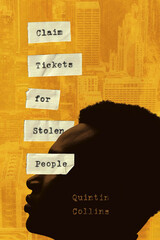
In Claim Tickets for Stolen People, Quintin Collins embraces a range of poetic forms and registers to show the resilience of Blackness in a colonized world. The tension between mortality and vitality is ever-present, whether Collins is charting his daughter’s emergence into being, cataloging the toll of white violence, or detailing the exuberance of community, family, and Chicago and Boston life. In Collins’s hands, the world is exquisitely physical and no element is without its own perspective, whether it is a truck sheared by a highway bridge or bees working through the knowledge that humans will kill them, burn their homes, and steal their honey. All goes toward honoring Black grief, Black anger, Black resistance, Black hope—and the persistence of Black love.
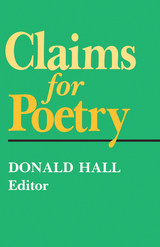
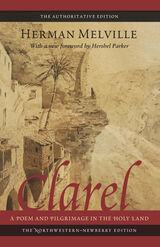
Melville’s long poem Clarel: A Poem and Pilgrimage in the Holy Land (1876) was the last full-length book he published. Until the mid-twentieth century even the most partisan of Melville’s advocates hesitated to endure a four-part poem of 150 cantos and almost 18,000 lines about a naive American named Clarel, on pilgrimage through the Palestinian ruins with a provocative cluster of companions.
But modern critics have found Clarel a much better poem than was ever realized. Robert Penn Warren called it a precursor of The Waste Land. It abounds with revelations of Melville’s inner life. Most strikingly, it is argued that the character Vine is a portrait of Melville’s friend Nathaniel Hawthorne. Clarel is one of the most complex theological explorations of faith and doubt in all of American literature, and this edition brings Melville’s poem to new life.
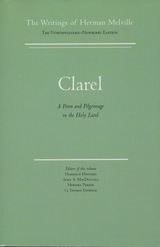
But modern critics have found Clarel a much better poem than was ever realized. Robert Penn Warren called it a precursor of The Waste Land. It abounds with revelations of Melville's inner life. Most strikingly, it is argued that the character Vine is a portrait of Melville's friend Hawthorne. Based on the only edition published during Melville's lifetime, this scholarly edition adopts thirty-nine corrections from a copy marked by Melville and incorporates 154 emendations by the present editors, an also includes a section of related documents and extensive discussions.
This scholarly edition is an Approved Text of the Center for Editions of American Authors (Modern Language Association of America).

These essays examine the multifaceted work of the Central American author whom Latin American literary historians consider precursor of “cultural dialogism” in poetry and fiction. As poet, essayist, journalist, novelist, and writer of “quasi–testimonio,” Alegría’s multiple discourses transgress the boundaries between traditional and postmodern political theories and practices. Her work reveals an allegory of relation and negotiation between “intelligentsia” and subaltern peoples as well as the need for a more socially extensive literature, not exclusive of more elite “magical literatures.”
The essays in the fist section frame Alegría’s discourses within sociohistorical, political, and literary contexts in order to illuminate the author’s singular place in the literary and political history of Central America. The essays in the second section engage in a feminist dialogic in which the reader encounters various critical validations and valorizations of Alegría’s many female voices. The third section involves the reader in the pursuit of extratextual or extraliterary resonances in Alegría’s work.
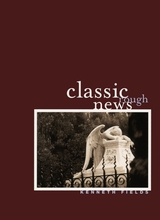
Classic Rough News follows a skeptical, cosmopolitan, intelligent, poetic presence aware that its carefully constructed veneer could crumble at any moment. In poems that mine interior dialogue for the discovery of great truths, Fields conveys feelings of awkwardness, incompleteness, conflict, and insanity-all in finely crafted verse. Ironic and skeptical, the voice in these poems records the flux of the mind, ruefully acknowledging how easy it is to deceive oneself with mixed emotions. Fully mature and unconcerned about impressions, Classic Rough News is grounded in erudition and humor, revealing how tradition and talent can push one another in unexpected directions.
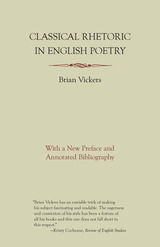
Back in print after 17 years, this is a concise history of rhetoric as it relates to structure, genre, and style, with special reference to English literature and literary criticism from Ancient Greece to the end of the 18th century.
The core of the book is a quite original argument that the figures of rhetoric were not mere mechanical devices, were not, as many believed, a "nuisance, a quite sterile appendage to rhetoric to which (unaccountably) teachers, pupils, and writers all over the world devoted much labor for over 2,000 years." Rather, Vickers demonstrates, rhetoric was a stylized representation of language and human feelings.
Vickers supplements his argument through analyses of the rhetorical and emotional structure of four Renaissance poems. He also defines 16 of the most common figures of rhetoric, citing examples from the classics, the Bible, and major English poets from Chaucer to Pope.

Late antique court poetry.
Claudius Claudianus, Latin poet of great affairs, flourished during the joint reigns (AD 394–5 onwards) of the brothers Honorius (Emperor in the West) and Arcadius (in the East). Apparently a native of Greek Alexandria in Egypt, he was, to judge by his name, of Roman descent, though his first writings were in Greek, and his pure Latin may have been learned as a foreign language. About AD 395 he moved to Italy (Milan and Rome) and though really a pagan, became a professional court poet composing for Christian rulers works which give us important knowledge of Honorius’ time.
A panegyric on the brothers Probinus and Olybrius (consuls together in 395) was followed in the subsequent ten years by other poems (mostly epics in hexameters): in praise of consulships of Honorius (AD 395, 398, 404); against the Byzantine ministers Rufinus (396) and Eutropius (399); in praise of the consulship (400) of Stilicho (Honorius’ guardian, general, and minister); in praise of Stilicho’s wife Serena; mixed metres on the marriage of Honorius to their daughter Maria; on the war with the rebel Gildo in Africa (398); on the Getic or Gothic war (402); on Stilicho’s success against the Goth Alaric (403); on the consulship of Manlius Theodorus (399); and on the wedding of Palladius and Celerina. He also composed non-official poems such as the three books of a mythological epic on the Rape of Proserpina, unfinished as was also a Battle of Giants (in Greek). Noteworthy are Phoenix, Senex Veronensis, elegiac prefaces, and the epistles, epigrams, and idylls.
Through the patronage of Stilicho or through Serena, Claudius in 404 married well in Africa and was granted a statue in Rome. Nothing is known of him after 404. In his works can be found true poetic as well as rhetorical skill, command of language, polished style, diversity, vigor, satire, dignity, bombast, artificiality, flattery, and other virtues and faults of the age.
The Loeb Classical Library edition of Claudian is in two volumes.

Late antique court poetry.
Claudius Claudianus, Latin poet of great affairs, flourished during the joint reigns (AD 394–5 onwards) of the brothers Honorius (Emperor in the West) and Arcadius (in the East). Apparently a native of Greek Alexandria in Egypt, he was, to judge by his name, of Roman descent, though his first writings were in Greek, and his pure Latin may have been learned as a foreign language. About AD 395 he moved to Italy (Milan and Rome) and though really a pagan, became a professional court poet composing for Christian rulers works which give us important knowledge of Honorius’ time.
A panegyric on the brothers Probinus and Olybrius (consuls together in 395) was followed in the subsequent ten years by other poems (mostly epics in hexameters): in praise of consulships of Honorius (AD 395, 398, 404); against the Byzantine ministers Rufinus (396) and Eutropius (399); in praise of the consulship (400) of Stilicho (Honorius’ guardian, general, and minister); in praise of Stilicho’s wife Serena; mixed metres on the marriage of Honorius to their daughter Maria; on the war with the rebel Gildo in Africa (398); on the Getic or Gothic war (402); on Stilicho’s success against the Goth Alaric (403); on the consulship of Manlius Theodorus (399); and on the wedding of Palladius and Celerina. He also composed non-official poems such as the three books of a mythological epic on the Rape of Proserpina, unfinished as was also a Battle of Giants (in Greek). Noteworthy are Phoenix, Senex Veronensis, elegiac prefaces, and the epistles, epigrams, and idylls.
Through the patronage of Stilicho or through Serena, Claudius in 404 married well in Africa and was granted a statue in Rome. Nothing is known of him after 404. In his works can be found true poetic as well as rhetorical skill, command of language, polished style, diversity, vigor, satire, dignity, bombast, artificiality, flattery, and other virtues and faults of the age.
The Loeb Classical Library edition of Claudian is in two volumes.
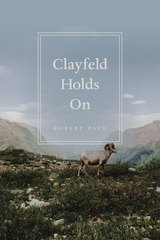
Beneath this mellow harvest moon,
I can still picture you—a boy content
just fishing with his father from a ledge
above a foaming stream. The flailing trout
you caught is packed in gleaming ice;
the pink stripe all along its side
is smeared across black shiny dots
that seem to shine with their own light.
I’m sure that you can picture me
with equal vividness, and though we’re not
identical, there is a sense
in which I am inventing you
as much as you’re inventing me.
In Clayfeld Holds On, Robert Pack offers his readers a comprehensive portrait of his longtime protagonist Clayfeld, who is also Pack’s doppelgänger, his alternate self, enacting both the life that the poet has lived and the life he might have lived, given his proclivities and appetites. Poet and protagonist, taken together, are self and consciousness of self, the historical self and the embellished story of that literal self.
Written with a masterly ear for rhythm, and interweaving narrative and lyrical passages, the poems recount Clayfeld’s formative memories while exploring concepts such as loyalty, generosity, commitment, as well as cosmic phenomena such as the big bang theory and black holes. Through all of this, Pack attempts to find purpose and meaning in an indifferent universe, and to explore the labyrinth of his own proliferating identity.
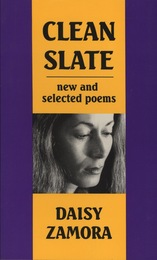

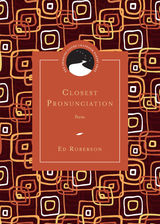
Northwestern University Press is honored to inaugurate the Drinking Gourd Chapbook Poetry Prize series with Ed Roberson’s Closest Pronunciation. Here is a teacher of poets studying his own assignments, questioning and seeking the generative capacity in looking at and seeing things that ends in the realization of a poem. In a line from the brief poem "Night Writing," from which the chapbook draws its title, he writes, "The word closest in pronunciation / To an ambulance’s siren is ‘wrong.’" The collection as a whole gives voice, often quiet but always profound, to many things overlooked and neglected in culture, nature, and everyday life.

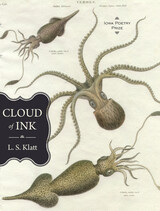

The master of Old Comedy.
Aristophanes of Athens, one of the world’s greatest comic dramatists, has been admired since antiquity for his iridescent wit and beguiling fantasy, exuberant language, and brilliant satire of the social, intellectual, and political life of Athens at its height. The Loeb Classical Library edition of his plays is in four volumes.
The Introduction to the edition is in Volume I. Also in the first volume is Acharnians, in which a small landowner, tired of the Peloponnesian War, magically arranges a personal peace treaty; and Knights, perhaps the most biting satire of a political figure (Cleon) ever written.
Three plays are in Volume II. Socrates’ “Thinkery” is at the center of Clouds, which spoofs untraditional techniques for educating young men. Wasps satirizes Athenian enthusiasm for jury service. In Peace, a rollicking attack on war-makers, the hero travels to heaven on a dung beetle to discuss the issues with Zeus.
The enterprising protagonists of Birds create a utopian counter-Athens ruled by birds. Also in Volume III is Lysistrata, in which our first comic heroine organizes a conjugal strike of young wives until their husbands end the war between Athens and Sparta. Women again take center stage in Women at the Thesmophoria, this time to punish Euripides for portraying them as wicked.
Frogs, in Volume IV, features a contest between the traditional Aeschylus and the modern Euripides, yielding both sparkling comedy and insight on ancient literary taste. In Assemblywomen Athenian women plot to save Athens from male misgovernance—with raucously comical results. Here too is Wealth, whose gentle humor and straightforward morality made it the most popular of Aristophanes’ plays from classical times to the Renaissance.
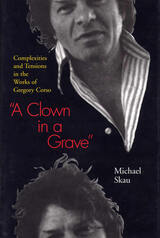
Using a number of critical approaches, Michael Skau examines Gregory Corso's complex imagination, his humor, and his poetic techniques in dealing with America, the Beat generation, and death.
Skau covers the complete works of Corso, one of the four major Beat Generation writers (with Jack Kerouac, Allen Ginsberg, and William S. Burroughs) who attempted to provide an alternative to what they saw as the academic forms of literature dominating American writing through the 1940s and 1950s. The Beat option focused on ordinary people, spurning the cultural pretensions of the intelligentsia and using common language as well as the rhythms of actual speech. Corso, abandoned as a child by his mother, subjected to a variety of foster homes, and imprisoned as an adolescent, became an authentic voice of America's neglected streetwise youth. He embodies much of the tension, confusion, and rebellion that emerged in America after World War II and eventually crested in the 1960s.
Corso emphasizes social issues, yet risks undermining this significance by using wit, wordplay, and humor. While conceding mortality, he is adamant in refusing to acknowledge death's power. Even as he rebels against conventional literature, he still is enchanted by classicism and romanticism, often borrowing their techniques and idioms. Skau examines these complexities and seeming contradictions throughout Corso's career, showing that Corso finds value in inconsistency and vacillation. For him, as illustrated in the poems "Hair" and "Marriage," contradiction and ambivalence suggest the foundations of freedom of imagination.
In spite of Corso's significance as an American poet, Skau's is the first extensive study of his work, including his fiction. Skau also provides the first complete bibliography of Corso's published work in more than thirty years.
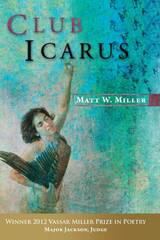
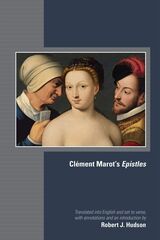
Clément Marot (1496–1544), a royal poet in Renaissance France who ushered in new verse forms and renewed existing ones, stands as one of the most important literary voices of the first half of the sixteenth century. Clément Marot’s Epistles represents a first attempt to offer a sustained English-language translation and critical edition of what is widely considered his most personal, historically relevant, and crowning verse form. Aiming for integrality and poetic precision, the volume translates and sets to verse all seventy-four of Marot’s epistles, employing the same meter and rhyme scheme used by the poet in the original compositions. Likewise focused on capturing Marot’s poetic voice, thus maintaining idiomatic and literary integrity, the resulting translation is an attempt to relate the playfulness and pathos of Marot’s verse, rendering it accessible to an anglophone public.
Beyond the more traditional verse epistles included in the primary base text, Marot’s authorized complete works from 1538, the volume also offers translations of the introductory prose epistles penned by Marot for his Adolescence clémentine of 1532 and the 1538 edition (Lyon, Dolet), as well as the coq-à-l’âne and other versified satirical epistles, the “artificial epistle” retelling of a popular medieval romance, and more. A robust critical apparatus includes ample footnotes, an extensive introduction, illustrations, a bibliography, a chronological table, and a concordance with the principal modern French-language editions of Marot’s epistles.
The book should appeal to English-speaking historians and literary scholars alike, as well as to poetry lovers, who will appreciate a new acquaintance with this distinctive voice from poetry’s past.
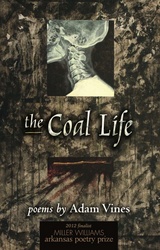
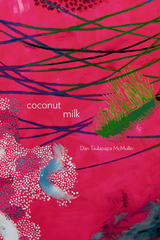
McMullin seamlessly flows between exposing the ironies of Tiki kitsch–inspired cultural appropriation and intimate snapshots of Samoan people and place. In doing so, he disrupts popular notions of a beautiful Polynesia available for the taking, and carves out new avenues of meaning for Pacific Islanders of Oceania. Throughout the collection, McMullin illustrates various manifestations of geopolitical, cultural, linguistic, and sexual colonialism. His work illuminates the ongoing resistance to colonialism and the remarkable resilience of Pacific Islanders and queer-identified peoples.
McMullin’s Fa’a Fafine identity—the ability to walk between and embody both the masculine and feminine—creates a grounded and dynamic voice throughout the collection. It also fosters a creative dialogue between Fa’a Fafine people and trans-Indigenous movements. Through a uniquely Samoan practice of storytelling, McMullin contributes to the growing and vibrant body of queer Indigenous literature.
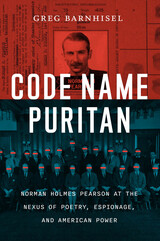
Although his impact on twentieth-century American cultural life was profound, few people know the story of Norman Holmes Pearson. His life embodies the Cold War alliances among US artists, scholars, and the national-security state that coalesced after World War II. As a Yale professor and editor, he helped legitimize the study of American culture and shaped the public’s understanding of literary modernism—significantly, the work of women poets such as Hilda Doolittle and Gertrude Stein. At the same time, as a spy, recruiter, and cultural diplomat, he connected the academy, the State Department, and even the CIA.
In Code Name Puritan, Greg Barnhisel maps Pearson’s life, from his youthful injury that led to a visible, permanent disability; to his wartime counterespionage work neutralizing the Nazis’ spy network; to his powerful role in the cultural and political heyday sometimes called the American Century. Written with clarity and informed by meticulous research, Barnhisel’s revelatory portrait of Pearson details how his unique experiences shaped his beliefs about American character, from the Puritans onward.
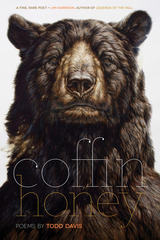
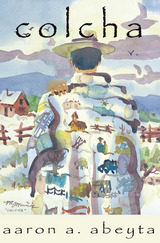
Winner of a 2002 American Book Award
Winner of the 2002 Colorado Book Award in Poetry
"The natural voice at work in the poetry sings of one human life as if it were our own. I loved listening."
—Rita Kiefer, author of Nesting Doll
"This just may be one of the best books of poetry I have ever read. . . . This is the kind of writing that give poetry a good name."
—Mike Nobles, Tulsa World
"Abeyta's poetry amazingly captures this struggle with poems that are simultaneously tortured and thankful, celebratory and melancholy, earthly and ethereal. . . . Poet Abeyta beautifully captures the hardships of living in rural Colorado."
—Blue Sky Quarterly
"Abeyta writes about family, friends, and famous (and infamous) locals. His approach is intimate and daring while avoiding the self-absorbed, coffee-house clichés we fear. Yes, death plays a role in the connection of community and the land, but these poems are sly rather than dark, modulated rather than graphic, sweet rather than maudlin."
—Wayne Sheldrake, Colorado Central Magazine
In Colcha, Aaron Abeyta blends the contrasting rhythms of the English and Spanish languages, finding music in a simple yet memorable lyricism without losing the complexity and mystery of personal experience. His forty-two poems take the reader on a journey through a contemplative personal history that explores communal, political and societal issues as well as the individual experiences of family and friends. With his distinctive voice, Abeyta invites people of all cultures to enter his poems by exploring the essence of humanity as expressed by his particular Hispanic culture and heritage.
Marked by intimacy and deep sentiment, Colcha not only acquaints us with the land of Abeyta's people, but also reveals the individuals from his life and family history in the most colorful and delicate detail. We meet his abuelitos (grandparents) in poems such as "colcha" and "3515 Wyandot," and hear of their connection to the tierra and its seasons, their labor and its bounty presented both viscerally and lovingly. We also meet the nameless people: the rancheros and the herders and the farmers, the locals in their pick-up trucks, and the women who make the tortillas. Abeyta's reflections on the plight, loves, joys, failures, and exploitation of the common person in such poems as "cuando se secan las acequias," "untitled (verde)," and "cinco de mayo" belong to the literary heritage of such poets as Pablo Neruda, Federico Garcia Lorca, and Walt Whitman.
Colcha is not just for those who love poetry, but for all people who wish to be moved by the music of language and, while listening, perhaps to gain some personal insight into their own lives and cultural traditions.
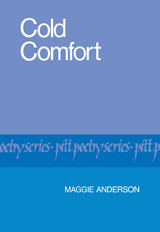
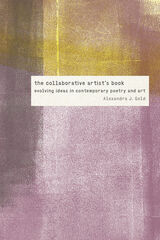
Gold presents five case studies and details not only how each individual collaboration came to be but how all five together engage and challenge conventional ideals about art, subjectivity, poetry, and interpersonal relations, as well as complex social questions related to gender and race. Taking several of these books out of special collections libraries and museum archives and making them available to a broad readership, Gold brings to light a whole genre that has been largely forgotten or neglected.
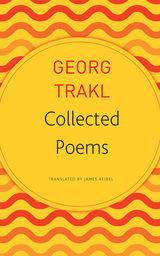
In a refreshing contrast to previous translated collections of Trakl’s work, James Reidel is mindful of how the poet himself wished to be read, emphasizing the order and content of the verses to achieve a musical effect. Trakl’s verses were also marked by allegiance to both the nineteenth and twentieth centuries, a fact which Reidel honors with impressive research into the historicity of the poet’s language.
Collected Poems gathers Trakl’s early, middle, and late work, ranging widely, from his haunting prose pieces to his darkly beautiful poems documenting the first bloody weeks of World War I on the Eastern Front.
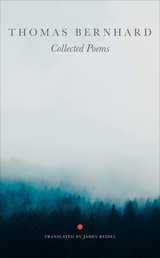
Beloved Austrian writer Thomas Bernhard (1931–89) began his career in the early 1950s as a poet. Over the next decade, Bernhard wrote thousands of poems and published four volumes of intensely wrought and increasingly personal verse, with such titles as On Earth and in Hell, In Hora Mortis, and Under the Iron of the Moon. Bernhard’s early poetry, bearing the influence of Georg Trakl, begins with a deep connection to his Austrian homeland. As his poems saw publication and recognition, Bernhard seemed always on the verge of joining the ranks of Ingeborg Bachmann, Paul Celan, and other young post-war poets writing in German. During this time, however, his poems became increasingly more obsessive, filled with undulant self-pity, counterpointed by a defamatory, bardic voice utterly estranged from his country, all of which resulted in a magisterial work of anti-poetry—one that represents Bernhard’s own harrowing experience with his leitmotif of success and failure, which makes his fiction such a pleasure. There is much to be found in these pages for Bernhard fans of every stripe.
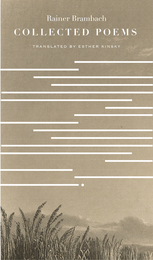
Marked by his disregard for material values, a profound engagement with the landscape of the Upper Rhine, and a lasting commitment to humanity, Brambach’s poems are direct, unadorned, and free of pomp or ideology. His quiet images conjure up landscapes, small rural scenes, and interiors of bars and cafes. Brambach was, above all, an observer whose poems provide insights of deceptive simplicity that form a poetic essence confirming the significance of this author’s voice. This collection of poems, masterfully translated by noted writer and poet Esther Kinsky, represents the first major English translation of a significant European poet.

Lincoln Battalion, the Americans who volunteered to help defend the elected
Spanish government during its 1936-39 civil war. His career began in the
revolutionary Left in New York in the 1920s and continued into the 1950s,
when Rolfe wrote searing poetry attacking the McCarthy-era witch-hunts.
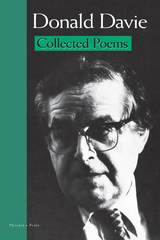
"Davie's voice—judgemental, ironic, epigrammatic, humorous, self-lacerating—speaks always with reference to an unhuman perpendicular standard that itself goes unquestioned. It is not a standard of Beauty or Truth; Davie is a poet of the third member of the Platonic triad, Justice."—Helen Vendler, The New Yorker
"[Davie's poems] are on the quiet side, often casual and musing in mood and tone; determined to resist large gestures of assent or denial. . .Donald Davie may just be the best English poet-critic of our time."—William Pritchard, The New Republic
"Donald Davie's Collected Poems does more than mark the culmination of one of the most distinguished careers in post-war British poetry; it is the autobiographical journey of a living poet at the height of his creative powers and the mastery of his craft. Davie is considered the most important and valuable contemporary link between poetry in England and America."—Sarah E. McNeil, Little Rock Free Press
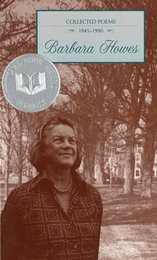
Finalist, 1995 National Book Award
This collection fills in a missing chapter in the history of American women’s poetry by bringing a significant voice back into print. Barbara Howes has perfected a personal style that had little to do with the fashionable currents of her time. Dana Gioia has said of her “[O]ne sees Howes very clearly as a woman writing in one of the oddest but most important traditions of American poetry. She stands with Marianne Moore, Elizabeth Bishop, and ultimately Emily Dickinson in a lineage of women writers passionately committed to the independence and singularity of the poetic imagination. Collected poems 1945-1990 contains the lifework of one of America’s irreplaceable poets.”
Forty years ago in The New Yorker Louise Bogan wrote: “Barbara Howes is the most accomplished women poet of the younger writing generation—one who has found her own voice, chosen her own material, and worked out her own form. Miss Howes is daring with language, but she is also accurate. Her originality stands in constant close reference to the material in hand, and although much of that material is fantastic or exotic, it is never so simply for its own sake.”
Drawing from seven previous books, this collection confirms and consolidates the reputation of Barbara Howes as a timeless poet whose fine voice and surprising insights will continue to delight all lovers of language.
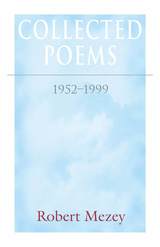

Years of translating Zen poems and religious texts have helped give Stryk a special sense of the particular, a feel for those details which, because they are so much a part of our lives, seem to define us. Stryk’s poetry is neither an attempt to surpass these details nor an attempt to give them significance. It is an activity that exists among them, as ordinary — yet as important — as breath. Stryk’s poetic power rests in the sureness of plain speech and his insistence on a direct, sympathetic attention to the world we actually inhabit.
Collected Poems, a gathering of three decades of work, contains nearly all Stryk’s poems, including the best of his Zen translations and a book–length section of new poetry. This book is a revelation of the wonderful amid the familiar by a poet whose language and vision have found their maturity.
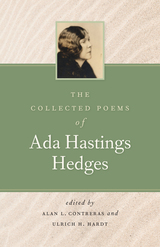
Except for a twelve-year sojourn in southeastern Oregon and two years in Los Angeles, Hedges lived in Portland from 1910 until her death in 1980. She was assistant editor at Binfords & Mort Publishers and a supervising editor in the Works Progress Administration. She taught briefly at Warner Pacific College in the 1960s.
Hedges wrote in a style notable for precision, clarity, and smoothness of line. More than half of her poems in this collection are sonnets. A poet of the city as well as the desert, her work offers a compelling perspective on mid-century Portland life. In 1933 she published her only book, Desert Poems. That collection is reprinted here in its entirety, along with scores of additional poems published in a wide variety of venues, making this the first comprehensive collection of Hedges’s work.
A detailed introduction by the editors and annotations to the text provide information about revisions, publication dates, and notable features. Also included is an essay by Hedges asking “Can Poetry Be Taught?” In her afterword, Oregon poet Ingrid Wendt writes of her admiration for Hedges’s “fierceness of spirit, lack of sentimentality, and complex vision.”
For readers interested in women’s literature, Pacific Northwest poetry, and the literature of Eastern Oregon, this volume reintroduces a compelling regional voice.

Confined to a wheelchair since childhood, Hall viewed life from the window of an upper room in her family’s house in Portland, Oregon. To better observe passersby on the sidewalk, she positioned a small mirror on her windowsill. Hall was an accomplished seamstress; her fine needlework helped to support the family and provided a vivid body of imagery for her precisely crafted, often gorgeously embellished poems.
Hall’s writings convey the dark undertones of the lives of working women in the early twentieth century, while bringing into focus her own private, reclusive life—her limited mobility, her isolation and loneliness, her gifts with needlework and words. In his updated introduction to this volume, John Witte examines Hall’s brief and brilliant career and highlights her remarkably modern sensibilities. In a new afterword, Anita Helle considers Hall’s work in an era when modes of literary historical recovery have been widened and expanded—and what that means in the afterlife of Hazel Hall.
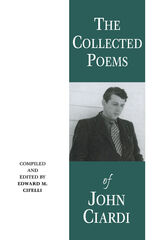
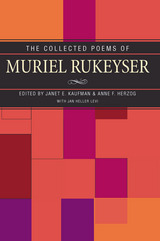
Muriel Rukeyser held a visionary belief in the human capacity to create social change through language. She earned an international reputation as a powerful voice against enforced silences of all kind, against the violence of war, poverty, and racism. Her eloquent poetry of witness-of the Scottsboro Nine, the Spanish Civil War, the poisoning of the Gauley Bridge laborers-split the darkness covering a shameful world.
In addition to the complete texts of her twelve previously published books, this volume also features new poems discovered by the editors; Rukeyser's translations, including the first English translations of Octavio Paz's work; early work by Rukeyser not previously published in book form; and the controversial book-length poem Wake Island. An introduction by the editors traces Rukeyser's life and literary reputation and complements discerning annotations and textual notes to the poems.
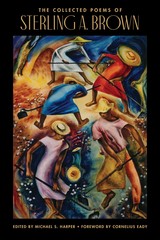
Edited by the late distinguished poet Michael S. Harper, this classic collection includes a new foreword by award-winning poet Cornelius Eady and the original introduction by Michael S. Harper, as well as introductions to Southern Road by James Weldon Johnson and Sterling Stuckey. The result is a tour de force by one of the most distinctive poets in American letters.
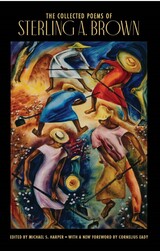
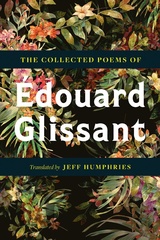
The complete poems of the two-time finalist for the Nobel Prize in Literature, available in English for the first time
This volume collects and translates—most for the first time—the nine volumes of poetry published by Édouard Glissant, a poet, novelist, and critic increasingly recognized as one of the great writers of the twentieth century. The poems bring to life what Glissant calls “an archipelago-like reality,” partaking of the exchanges between Europe and its former colonies, between humans and their geographies, between the poet and the natural world.
Reciting and re-creating histories of the African diaspora, Columbus’s “discovery” of the New World, the slave trade, and the West Indies, Glissant underscores the role of poetic language in changing both past and present irrevocably. As translator Jeff Humphries writes in his introduction, Glissant’s poetry embraces the aesthetic creed of the French symbolists Mallarmé and Rimbaud (“The poet must make himself into a seer”) and aims at nothing less than a hallucinatory experience of imagination in which the differences among poem, reader, and subject dissolve into one immediate present.
Born in Martinique in 1928, influenced by the controversial Martinican poet/politician Aimé Césaire, and educated at the Sorbonne in Paris, Édouard Glissant has emerged as one of the most influential postcolonial theorists, novelists, playwrights, and poets not only in the Caribbean but also in contemporary French letters. He has twice been a finalist for the Nobel Prize in Literature as well as the recipient of both the Prix Renaudot and the Prix Charles Veillon in France. His works include Poetics of Relation, Caribbean Discourse, Faulkner Mississippi, and the novel The Ripening. He currently serves as Distinguished Professor of French at City University of New York, Graduate Center.
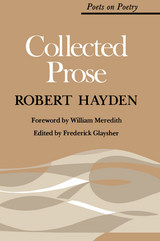
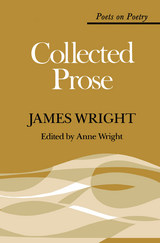
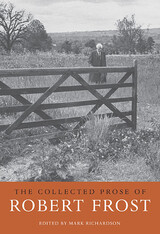
During his lifetime, Robert Frost notoriously resisted collecting his prose--going so far as to halt the publication of one prepared compilation and to "lose" the transcripts of the Charles Eliot Norton Lectures he delivered at Harvard in 1936. But for all his qualms, Frost conceded to his son that "you can say a lot in prose that verse won't let you say," and that the prose he had written had in fact "made good competition for [his] verse." This volume, the first critical edition of Robert Frost's prose, allows readers and scholars to appreciate the great American author's forays beyond poetry, and to discover in the prose that he did make public--in newspapers, magazines, journals, speeches, and books--the wit, force, and grace that made his poetry famous.
The Collected Prose of Robert Frost offers an extensive and illuminating body of work, ranging from juvenilia--Frost's contributions to his high school Bulletin--to the charming "chicken stories" he wrote as a young family man for The Eastern Poultryman and Farm Poultry, to such famous essays as "The Figure a Poem Makes" and the speeches and contributions to magazines solicited when he had become the Grand Old Man of American letters. Gathered, annotated, and cross-referenced by Mark Richardson, the collection is based on extensive work in archives of Frost's manuscripts. It provides detailed notes on the author's habits of composition and on important textual issues and includes much previously unpublished material. It is a book of boundless appeal and importance, one that should find a home on the bookshelf of anyone interested in Frost.
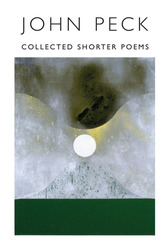
John Peck's poems draw on both modernist and traditional resources, quarrying in the large gaps among contemporary readers of poetry. This definitive collection makes available difficult-to-find works by a remarkable, thoroughly original American poet. Peck's poems continue to attract a discerning, loyal audience of readers up to the challenge of confronting his astonishing range and ambitions.
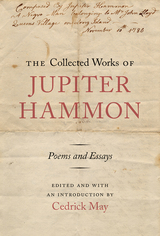
Cedrick May’s The Collected Works of Jupiter Hammon offers a complete look at the literary achievements of one of the founders of African American literature. Born into slavery on the Lloyd plantation in 1711, Jupiter Hammon became the first African American writer to be published in the present-day United States at the age of forty-nine. It has been decades since a collection of Hammon’s work has appeared, and May’s intensive research has yielded two additional poems, adding new layers to his works and life that, until now, have gone unexplored.
The most comprehensive volume on Hammon’s works to date, The Collected Works of Jupiter Hammon carefully reconstructs the historical, political, social, and religious contexts that shaped his essays and poems throughout the late eighteenth century. This attentive reconstruction, which takes full account of Hammon’s prose works as well as his more well-known poetry, gives readers a radical re-reading of Hammon as a much more complex and intellectually curious commentator on his historical and political period, while providing ample evidence of his literary importance and artistic integrity. Cedrick May’s fresh presentation and insightful reevaluation of Hammon’s life and writings will change the way Hammon is studied and appreciated among literary scholars and readers alike. This edition will become the definitive one for many years to come.

At his death in 1882, Ralph Waldo Emerson was counted among the greatest poets in nineteenth-century America. This variorum edition of all the poems Emerson chose for publication during his lifetime offers readers the opportunity to situate Emerson’s poetic achievement alongside his celebrated essays and to consider their interrelationship.
Decades before Walt Whitman and Emily Dickinson took their places in the firmament of American poets, Emerson was securely enthroned. Though his reputation as essayist now eclipses his reputation as poet, Emerson self-identified as a writer of verse and worked out his transcendental philosophy in this genre, establishing his belief in the authority of individual experience and in the essential metaphoric nature of language. Albert J. von Frank’s historical introduction traces the development of Emerson the poet, considering how life events, as well as his reading of German philosophy and Sufi poetry, influenced his thought and expression. Alongside accounts of the critical reception of his poems are public and private writings that reveal Emerson’s own estimation of his poetic project and achievement.
The textual introduction and apparatus make transparent the theoretical and practical concerns that inform these critical texts. Also included are a chronological lists of variants and texts constituting the historical collation, notes clarifying obscure allusions, and headnotes identifying sources and context.
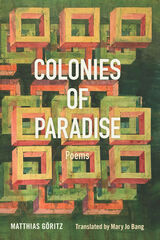
The first book of poetry by Matthias Göritz to be available in English, in a translation by a renowned writer
Very few books of poetry by contemporary German writers are available to English-speaking readers. In Colonies of Paradise, acclaimed poet and translator Mary Jo Bang introduces the poems of novelist, poet, and translator Matthias Göritz, one of the most exciting German writers publishing today. The poems in this book, which originally appeared in German under the title Loops, take the reader on a tour of Paris, Chicago, Hamburg, and Moscow as they explore childhood, travel, and the human experience. Unsettling our expectations about adulthood, the book permeates the quotidian with a disquieting strangeness that leads us deeper into our own lives and histories. Göritz’s sly humor, keen insight, and artistry are brought to the fore in Bang’s careful and innovative translation, allowing an English-language audience to enter fully the intricate interiority of Göritz’s work.
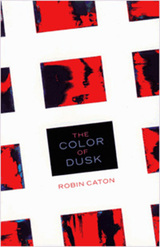
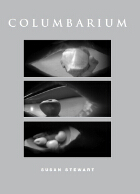
In her long-awaited fourth book of poetry, Susan Stewart gives us a series of splendid, numinous poems about truths learned with the mind but set free through the senses. Modeled on the seventeenth-century practice of century forms, or books of one hundred pages, Columbarium expresses the bond between the living and the dead in voices of parent to child, lover to beloved, and mortal to the gods. The book arrives as a meditative gift from one of our most respected poet-critics.
Stewart frames her Columbarium with four poems paying homage to the elements-to their destructive and creative aspects and to their roles in the human and more than human worlds. Both nest and crypt, the book's center holds an alphabet of "shadow georgics," poems of instruction and doubt that link knowledge and the unconscious. Questions of mortality, of goodness and suffering, and of the fragility and power of memory animate these poems. In one poem an apple calls the narrator back from the dead to savor the echoes of its varieties in myth and literature. In another, the seeds of a pear tree reveal the essential unity that makes the diversity of existence possible.
Stewart's Columbarium is both a memorial to the dead and a testament to life.
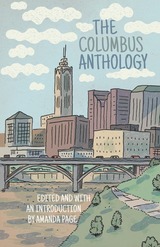
Race, sports, the endless squeeze of gentrification, the city’s booming literary and comics scenes, its reputation as a haven for queer life, the sometimes devastating differences in perspective among black and white, native and transplant residents—and more than one tribute to Buckeye Donuts—make this anthology a challenging and an energizing read. From Hanif Abdurraqib’s sparkling and urgent portrait of Columbus’s vital immigrant culture as experienced through Crew games to Nick Dekker’s insights into breakfast as a vehicle for getting to know a city to the poetry of Maggie Smith and Ruth Awad, the pieces gathered here show us a Columbus far more textured than any test marketer could dream up.
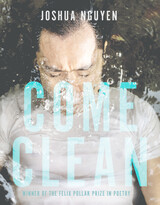
No matter how smattered my insides,
One less ugly sight.
I always wanted to die clean & pretty
while my dreams made music in the night.
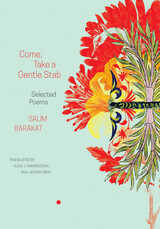
Although Salim Barakat is one of the most renowned and respected contemporary writers in Arabic letters, he remains virtually unknown in the English-speaking world. This first collection of his poetry in English, representing every stage of his career, remedies that startling omission. Come, Take a Gentle Stab features selections from his most acclaimed works of poetry, including excerpts from his book-length poems, rendered into an English that captures the exultation of language for which he is famous.
A Kurdish-Syrian man, Barakat chose to write in Arabic, the language of cultural and political hegemony that has marginalized his people. Like Paul Celan, he mastered the language of the oppressor to such an extent that the course of the language itself has been compelled to bend to his will. Barakat pushes Arabic to a point just beyond its linguistic limits, stretching those limits. He resists coherence, but never destroys it, pulling back before the final blow. What results is a figurative abstraction of struggle, as alive as the struggle itself. And always beneath the surface of this roiling water one can glimpse the deep currents of ancient Kurdish culture.
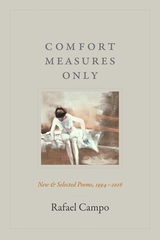
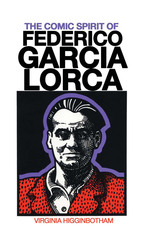
During the years since his death, Federico García Lorca, Spain's best-known twentieth-century poet and playwright, has generally been considered a writer of tragedy. Three of his major plays are fatalistic stories of suffering and death, and his poetry is filled with dread. Yet most of Lorca's dramatic production consists of comedies and farces. Throughout his poetry and prose, as well as in his most somber plays, runs an undercurrent of humor—dark irony and satire—that is in no way contradictory to his tragic view of life. On the contrary, as Virginia Higginbotham demonstrates, through humor Lorca defines, intensifies, and tries to come to terms with what he sees as the essentially hopeless condition of humankind.
Although Lorca's comic moments and techniques have been discussed in isolated articles, the importance of humor has largely been ignored in the fundamental studies of his work. Higginbotham is concerned with Lorca's total output: lyric poetry, tragicomedies and farces, avant-garde prose and plays, puppet farces, and master plays. She describes Lorca's place in the mainstream of the Spanish theater and shows his relationship to some relevant non-Spanish dramatists. Furthermore, she discusses ways in which Lorca's work anticipates the modern theater of the absurd. The result is a comprehensive study of an important, but previously ignored, aspect of Lorca's work.
The Comic Spirit of Federico García Lorca includes a Lorca chronology and an extensive bibliography.
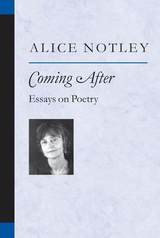
Notley explores the work of second-generation New York School poets and their allies: Ted Berrigan, Anne Waldman, Joanne Kyger, Ron Padgett, Lorenzo Thomas, and others. These essays and reviews are among the first to deal with a generation of poets notorious for their refusal to criticize and theorize, assuming the stance that "only the poems matter." The essays are characterized by Notley's strong, compelling voice, which transfixes the reader even in the midst of professional detail. Coming After revives the possibility of the readable book of criticism.
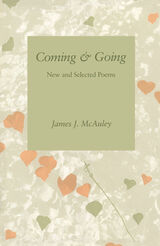
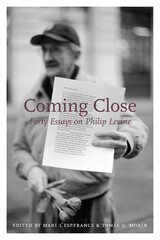
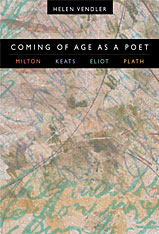
To find a personal style is, for a writer, to become adult; and to write one’s first “perfect” poem—a poem that wholly and successfully embodies that style—is to come of age as a poet. By looking at the precedents, circumstances, and artistry of the first perfect poems composed by John Milton, John Keats, T. S. Eliot, and Sylvia Plath, Coming of Age as a Poet offers rare insight into this mysterious process, and into the indispensable period of learning and experimentation that precedes such poetic achievement.
Milton’s L’Allegro, Keats’s On First Looking into Chapman’s Homer, Eliot’s The Love Song of J. Alfred Prufrock, and Plath’s The Colossus are the poems that Helen Vendler considers, exploring each as an accession to poetic confidence, mastery, and maturity. In meticulous and sympathetic readings of the poems, and with reference to earlier youthful compositions, she delineates the context and the terms of each poet’s self-discovery—and illuminates the private, intense, and ultimately heroic effort and endurance that precede the creation of any memorable poem.
With characteristic precision, authority, and grace, Vendler helps us to appreciate anew the conception and the practice of poetry, and to observe at first hand the living organism that breathes through the words of a great poem.
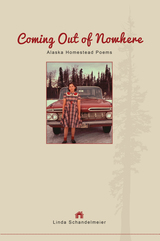
Homestead life is often romanticized as a valiant, resilient family persisting in the clean isolation of pristine wilderness, living off the land and depending only on each other. But there can be a darker side to this existence.
Linda Schandelmeier was raised on a family homestead six miles south of the fledgling town of Anchorage, Alaska in the 1950s and ’60s. But hers is not a typical homestead story. In this book, part poetic memoir and part historical document, a young girl comes of age in a family fractured by divorce and abuse. Schandelmeier does not shy away from these details of her family history, but she also recognizes her childhood as one that was unique and nurturing, and many of her poems celebrate homestead life. Her words hint at her way of surviving and even transcending the remoteness by suggesting a deeper level of human experience beyond the daily grind of homestead life; a place in which the trees and mountains are almost members of the family. These are poems grounded in the wilds that shimmer with a mythic quality. Schandelmeier’s vivid descriptions of homesteading will draw in readers from all types of lives.
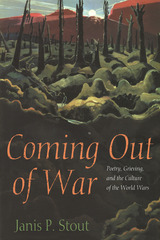
World War I is widely considered “the Great War” and World War II, “the Good War.” Janis Stout thinks of them as two parts of a whole that continues to engage historians and literary scholars searching for an understanding of both the actual war experiences and the modern culture of grief they embody. In Coming Out of War: Poetry, Grieving, and the Culture of the World Wars Stout argues that poetry, of all the arts, most fully captures and conveys those cultural responses.
While probing the work of such well known war poets as Rupert Brooke, Wilfred Owen, and Randall Jarrell, Stout also highlights the impact of the wars on lesser studied, but equally compelling, sources such as the music of Charles Ives and Cole Porter, Aaron Copland and Irving Berlin. She challenges the commonplace belief that war poetry came only from the battlefield and was written only by men by examining the wartime writings of women poets such as Rose Macaulay, Marianne Moore, Elizabeth Bishop, and Gwendolyn Brooks. She also challenges the assumption that World War II did not produce poetry of distinction by studying the work of John Ciardi, Karl Shapiro, Louis Simpson, Robert Frost, and Wallace Stevens. While emphasizing aesthetic continuity between the wars, Stout stresses that the poetry that emerged from each displays a greater variety than is usually recognized.
A final chapter considers Benjamin Britten’s War Requiem as a culmination and embodiment of the anti-war tradition in 20th-century poetry and music, and speculates on the reasons why, despite their abundance and eloquence, these expressions of grief and opposition to war have effected so little change.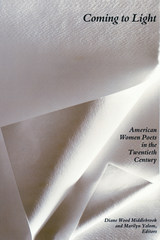

Parker begins by tracing the criticism of Dante commentaries from the nineteenth century to the present and then examines the tradition of commentary from the Middle Ages to the Renaissance. She shows how the civic, institutional, and social commitments of commentators shaped their response to the Comedy, and how commentators tried to use the poem as an authoritative source for various kinds of social legitimation. Parker discusses how different commentators dealt with a deeply political section of the poem: the damnation of Brutus and Cassius.
The scope and importance of Commentary and Ideology will command the attention of a broad group of scholars, including Italian specialists on Dante, late medievalists, students and professionals in early modern European literature, bibliographers, critical theorists, historians of literary criticism and theory, and cultural and intellectual historians.

Nigel of Canterbury, also known as Longchamp and Whiteacre, wrote toward the end of the so-called Twelfth-Century Renaissance. He was a Benedictine monk of Christ Church when Thomas Becket was martyred, and a star of Anglo-Latin literature while the Angevin kings held sway over a vast empire that encompassed not only the British Isles but also western France.
The Dumbarton Oaks Medieval Library volume features, alongside the Latin, the first-ever English translation of Nigel’s second-longest poem, Miracles of the Virgin. The Miracles is the oldest extant collection of versified miracles of Mary in Latin and indeed in any language. The seventeen narratives, telling a gamut of tales from diabolic pacts to pregnant abbesses, gave scope for Nigel to display skills as a storyteller and stylist, while recounting the miraculous mercy of the Virgin. This supplement offers an extensive commentary to facilitate appreciation of the Miracles as poetry by a medieval writer deeply imbued in the long tradition of Latin literature.

Desire, ambition, devotion, and devastating loss are all subjects for Mazur's clear-eyed poems, which resonate with the contradictions between the body's yearning and the mind's acknowledgment of the consequences of our choices. In a poetry driven by unrelenting questioning, Mazur tries, in Rilke's worlds, "to love the questions themselves."
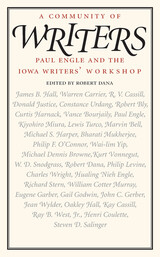
With these words, written long before his Iowa Writers' Workshop became world famous, much imitated, and academically rich, Paul Engle captured the spirit behind his beloved workshop. Now, in this collection of essays by and about those writers who shared the energetic early years, Robert Dana presents a dynamic, informative tribute to Engle and his world.
The book's three sections mingle myth and history with style and grace and no small amount of humor. The beginning essays are given over to memories of Paul Engle in his heyday. The second group focuses particularly on those teachers—Robert Lowell, John Berryman, Kurt Vonnegut, for example—who made the workshop hum on a day-to-day basis. Finally, the third section is devoted to storytelling: tall tales, vignettes, surprises, sober and not-so-sober moments. Engle's own essay, "The Writer and the Place," describes his "simple, and yet how reckless" conviction that "the creative imagination in all of the arts is as important, as congenial, and as necessary, as the historical study of all the arts."
Today, of course, there are hundreds of writers' workshops, many of them founded and directed by graduates of the original Iowa workshop. But when Paul Engle arrived in Iowa there were exactly two. His indomitable nature and great persuasive powers, combined with his distinguished reputation as a poet, loomed large behind the enhancement of the Iowa Writers' Workshop. This volume of fine and witty essays reveals the enthusiasm and drive and sheer pleasure that went into Iowa's renowned workshop.
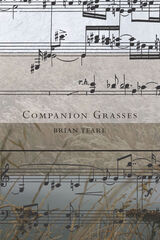

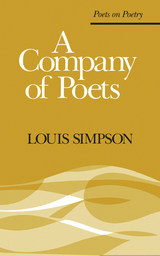
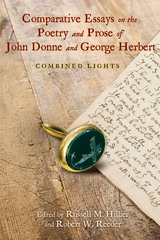

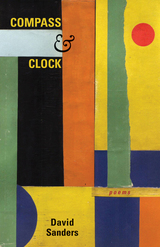
The poems of Compass and Clock take their inspiration from the intersection of the natural world and the human, exploring the landscapes in which those intersections occur. Those landscapes range from David Sanders’s native midwestern countryside to the caves of Lascaux and an enchanted lake where relics of lost lives are washed ashore. Yet, the true source of the poems’ vitality is Sanders’s attention to the missed or misread moments, those times when the act fails, and the perceived clashes with the actual.
Here, the satisfying pairing of elegance and vulnerability invites the reader to tour those uncanny landscapes from which one returns irrevocably changed—refreshed, but wistful. In a review of his earlier limited-edition work, Time in Transit, the Hudson Review called David Sanders “a poet to watch.” With the Swallow Press publication of Compass and Clock, we have the realization of that promise.
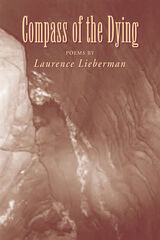
When Laurence Lieberman writes of Guyana or islands in the Dutch West Indies, he excavates, explores, even exhumes the essence of the place. In the flora and fauna, in the rural cafes and ruins of churches and crypts, in the taste of iguana soup and the look of light through stained glass, Lieberman unfolds an exquisite atlas of the senses.
The awe of encounter, the raw impact, beauty, and sometimes the brutality of both the surroundings and the people fuel this poetry. Whether he meets an iguana hunter, a bricklayer, a witness to the United States–led Grenada invasion, or a classical composer, Lieberman gives the reader a vivid combination of his own wit and surprising observations mingled with the speech of each character.
Folk tales, legends, and island myths play a great role in his newest work. In the eddies of a river in Guyana, Lieberman dares river demons. On the island of Aruba, he hears the chants and work songs of long-dead miners in an abandoned gold mine. He briefly loses himself when he stares into the mirror of a well once frequented by slaves on Bonaire.
Coupled with natural forces—floods, volcanic eruptions, constant rains—these folk tales and the stories of the islanders’ lives create a “wedding of sun and rain,” and a map to the troves of the Caribbean hidden beneath a rich and often violent history.
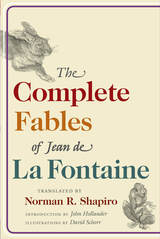
Told in an elegant style, Jean de la Fontaine's (1621-95) charming animal fables depict sly foxes and scheming cats, vain birds and greedy wolves, all of which subtly express his penetrating insights into French society and the beasts found in all of us. Norman R. Shapiro has been translating La Fontaine's fables for over twenty years, capturing the original work's lively mix of plain and archaic language. This newly complete translation is destined to set the English standard for this work.
Awarded the Lewis Galantière Prize by the American Translators Association, 2008.
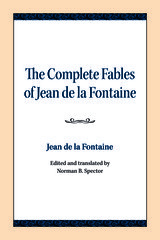
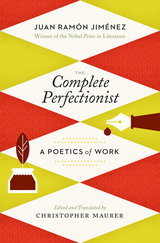
Few have written more memorably about the work of poetry and the poetics of work than Juan Ramón Jiménez, winner of a Nobel Prize and discerning teacher of an entire generation of Spanish poets. In this series of aphorisms, Jiménez brings together the elements of perfect work, both in writing and in other realms. Among these elements—the wellsprings of any kind of creation—are instinct and inspiration, memory and forgetting, silence and noise, love and regret.
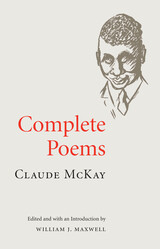
Containing more than three hundred poems, including nearly a hundred previously unpublished works, this unique collection showcases the intellectual range of Claude McKay (1889-1948), the Jamaican-born poet and novelist whose life and work were marked by restless travel and steadfast social protest. McKay's first poems were composed in rural Jamaican creole and launched his lifelong commitment to representing everyday black culture from the bottom up. Migrating to New York, he reinvigorated the English sonnet and helped spark the Harlem Renaissance with poems such as "If We Must Die." After coming under scrutiny for his communism, he traveled throughout Europe and North Africa for twelve years and returned to Harlem in 1934, having denounced Stalin's Soviet Union. By then, McKay's pristine "violent sonnets" were giving way to confessional lyrics informed by his newfound Catholicism.
McKay's verse eludes easy definition, yet this complete anthology, vividly introduced and carefully annotated by William J. Maxwell, acquaints readers with the full transnational evolution of a major voice in twentieth-century poetry.
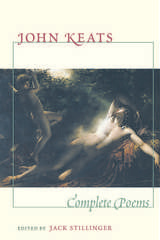
Here is the first reliable edition of John Keats’s complete poems designed expressly for general readers and students.
Upon its publication in 1978, Jack Stillinger’s The Poems of John Keats won exceptionally high praise: “The definitive Keats,” proclaimed The New Republic—“An authoritative edition embodying the readings the poet himself most probably intended, prepared by the leading scholar in Keats textual studies.”
Now this scholarship is at last available in a graceful, clear format designed to introduce students and general readers to the “real” Keats. In place of the textual apparatus that was essential to scholars, Stillinger here provides helpful explanatory notes. These notes give dates of composition, identify quotations and allusions, gloss names and words not included in the ordinary desk dictionary, and refer the reader to the best critical interpretations of the poems. The new introduction provides central facts about Keats’s life and career, describes the themes of his best work, and speculates on the causes of his greatness.
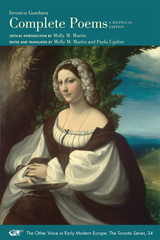
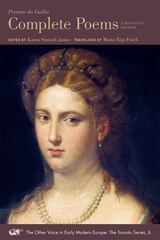
This first complete English edition provides a fully-annotated bilingual text and a fresh perspective from which to appreciate the originality and beauty of this poetry.
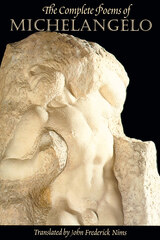
"Wonderful. . . . Nims gives us Michelangelo whole: the polymorphous love sonneteer, the political allegorist, and the solitary singer of madrigals."—Kirkus Reviews
"A splendid, fresh and eloquent translation. . . . Nims, an eminent poet and among the best translators of our time, conveys the full meaning and message of Michelangelo's love sonnets and religious poems in fluently rhymed, metrical forms."—St. Louis Post-Dispatch
"The best so far. . . . Nims is best at capturing the sound and sense of Michelangelo's poetic vocabulary."—Choice
"Surely the most compelling translations of Michelangelo currently available in English."—Ronald L. Martinez, Washington Times
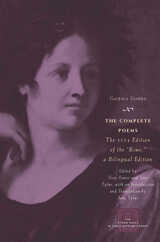
Gaspara Stampa (1523?-1554) is one of the finest female poets ever to write in Italian. Although she was lauded for her singing during her lifetime, her success and critical reputation as a poet emerged only after her verse was republished in the early eighteenth century. Her poetry runs the gamut of human emotion, ranging from ecstasy over a consummated love affair to despair at its end. While these tormented works and their multiple male addressees have led to speculation that Stampa may have been one of Venice’s famous courtesans, they can also be read as a rebuttal of typical assumptions about women’s roles. Championed by Rainer Maria Rilke, among others, she has more recently been celebrated by feminist scholars for her distinctive and original voice and her challenge to convention.
The first complete translation of Stampa into English, this volume collects all of her passionate and lyrical verse. It is also the first modern critical edition of her poems, and in restoring the original sequence of the 1554 text, it allows readers the opportunity to encounter Stampa as she intended. Jane Tylus renders Stampa’s verse in precise and graceful English translations, allowing a new generation of students and scholars of poetry, Renaissance literature, and music history to rediscover this incipiently modern Italian poet.
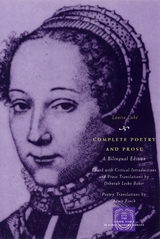
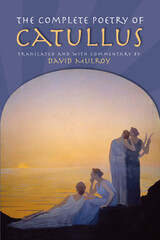
Catullus’ life was akin to pulp fiction. In Julius Caesar’s Rome, he engages in a stormy affair with a consul’s wife. He writes her passionate poems of love, hate, and jealousy. The consul, a vehement opponent of Caesar, dies under suspicious circumstances. The merry widow romances numerous young men. Catullus is drawn into politics and becomes a cocky critic of Caesar, writing poems that dub Julius a low-life pig and a pervert. Not surprisingly, soon after, no more is heard of Catullus.
David Mulroy brings to life the witty, poignant, and brutally direct voice of a flesh-and-blood man, a young provincial in the Eternal City, reacting to real people and events in a Rome full of violent conflict among individuals marked by genius and megalomaniacal passions. Mulroy’s lively, rhythmic translations of the poems are enhanced by an introduction and commentary that provide biographical and bibliographical information about Catullus, a history of his times, a discussion of the translations, and definitions and notes that ease the way for anyone who is not a Latin scholar.
READERS
Browse our collection.
PUBLISHERS
See BiblioVault's publisher services.
STUDENT SERVICES
Files for college accessibility offices.
UChicago Accessibility Resources
home | accessibility | search | about | contact us
BiblioVault ® 2001 - 2024
The University of Chicago Press









